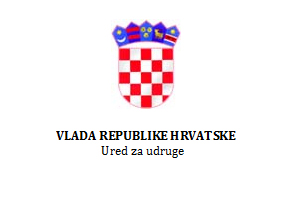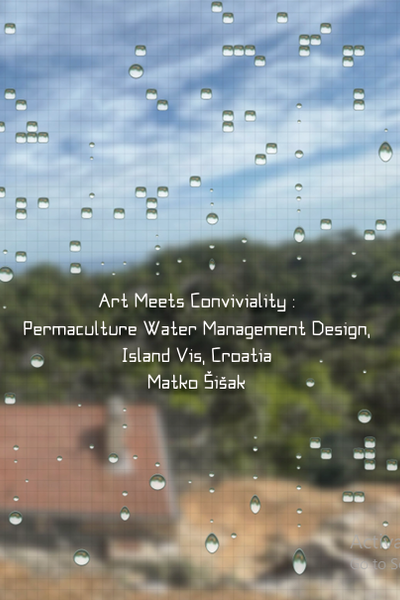The project Art meets conviviality – Permaculture water management design project is being implemented as part of the S+T+ARTS4WaterII residency project titled Cisterns Meet Modern Tech – Circular Water Systems as a Convivial Tool.
The project is being implemented on the island of Vis in collaboration with the Drugo more association from Rijeka, ISSA- Island School of Social Autonomy from Komiža and ZMAG from Vukomerić. Artist and builder Matko Šišak from ZMAG, along with a number of collaborators, was given the opportunity to design and implement a whole series of usable installations and solutions to provide water to the ISSA association and establish a connection between tradition, new technologies and free art forms.
Art meets conviviality – Permaculture water management design project has as its main focus the issue of water management. It is aimed at developing sustainable solutions for the collection, storage, purification and management of rainwater on the island of Vis on the property of the ISSA Association.
The project focused on integrating permaculture design and sustainable water management with traditional knowledge and heritage in a warm, dry Mediterranean climate. Permaculture design is a holistic approach to creating sustainable human habitats by mimicking patterns in natural ecosystems. It applies a set of design principles and ethics to harmonise human activities with the natural world, resulting in productive, resilient, and self-sustaining systems.
In our work, these functional needs were complemented by artistic techniques and interventions, maintaining both aesthetic value and cultural significance. The local host of the residency, ISSA – the Island School of Social Autonomy – places strong emphasis on education and community engagement.
All planned water installations and management models were designed and built through four artistic-technical residencies at the ISSA site, located on the summit of the island of Vis, beneath Hum Hill. The site now features:
- a “cloud collector” or fog collector for capturing water vapour,
- a restored traditional stone cistern,
- a new monolithic outdoor kitchen with integrated water filtration and distribution system,
- solar-powered showers,
- a compost toilet,
- a constructed wetland wastewater treatment system, and
- an additional rainwater storage tank system.
Clean water from these systems is ultimately used for irrigating a Mediterranean forest garden. All systems were designed to be functional and efficient while also serving as artistic and communicative installations.
A highlight of the project was the creation of the Water Symphony, in which the sustainable water management system is connected to sound microsensors. These sensors record wind, water flow, air currents, temperature differences, and other parameters, transforming them into ambient soundscapes through custom-designed software.
Our work has ensured the smooth operation of the ISSA project – Island School of Social Autonomy – and we hope it will serve as inspiration for other Mediterranean communities facing similar challenges, particularly those without access to piped water or wells.
Project team:
Author & Artist in Residence & Builder: Matko Šišak
ZMAG supervision: Dražen Šimleša
ZMAG Office Support: Una Milić
ZMAG Engineering and Construction support team: Jakov Radošević, Alen Cerovac, Kristijan Perlić, Goran Brumić
ISSA Field support: Srećko Horvat, Luka Vlahović, Marina Andrijašević
Architect: Luka Vlahović
Construction engineer: Jakov Radošević
Sound artist: Marina Andrijašević
The Other Sea support team: Ivana Katić, Davor Mišković, Dubravko Matanić
Film Production: Dario Juričan
Illustrations & Graphic Design: Miran Križanić
Read more about the STARTS initiative launched by the European Commission and other selected projects on the website: https://starts.eu/starts4water-ii-residencies/
--
This work was commissioned within the framework of the S+T+ARTS4Water II residency programme by Drugo more and the S+T+ARTS programme of the European Union.
Project is co-financed by the Government Office for Cooperation with NGOs of The Republic of Croatia.
Views and opinions expressed are those of the author(s) only and do not necessarily reflect those of the European Union, DG CNECT or Government of the Republic of Croatia - Office for Cooperation with NGOs















